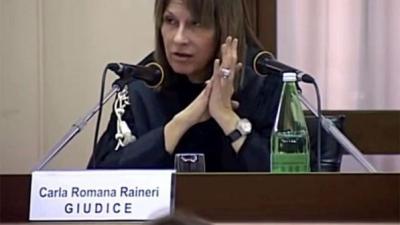Raineri and Minenna resign in Campidoglio squabble

ROMA — The head of the Campidoglio's Cabinet Carla Raineri and its alderman Marcello Minenna submitted their resignations from Virginia Raggi’s council on Wednesday evening in what members of the Democratic Party call an "increasingly chaotic" turn of events for the Five Star Movement.
The resignations come only two months after Raggi assumed office, and the mayor has still not hinted at a solution to fill the head of cabinet position, a role so sensitive as to cause disputes even within Raggi's M5S.
Upon her appointment, the first to be nominated for the role was Daniele Frongia, right-hand-man to the mayor who was instead given the role of Deputy Mayor.
The Campidoglio then considered appointing Daniela Morgante, a judge from the Court of Auditors who has already a member of former mayor Ignazio Marino’s council, but the nomination fell through after it met with too much opposition.
In the end, the general consensus fell upon Raineri, also a judge, who had already worked with the commissioner Francesco Paolo Tronca and with now former alderman Marcello Minenna.
News of her resignation and that of Minenna came on Thursday morning, and Raineri made clear that she was set on an "irrevocable resignation," which, of course, means another round of nominations. The former Head of the Cabinet told those who asked for the motive behind her decision that she would "make them explicit later in an official announcement."
The selection process for Raggi's cabinet has been a difficult one from the outset. On the mayor's appointment back in June, there was also considerable debate over who should become Deputy Head. Initially, the role was assigned to Raffaele Marra, a public official who has worked with Gianni Alemanno and Renata Polverini in the past. The nomination did not go down well with M5S, however, and was also revoked.
The Democratic Party was quick to comment on the resignations. One senator, Stefano Esposito, remarked that "the internal battle of the M5S has seen its first two casualties," while another, Raffaele Ranucci, called the turn of events "a bloody and unacceptable feud which the people of Rome will have to put up with."
lej


